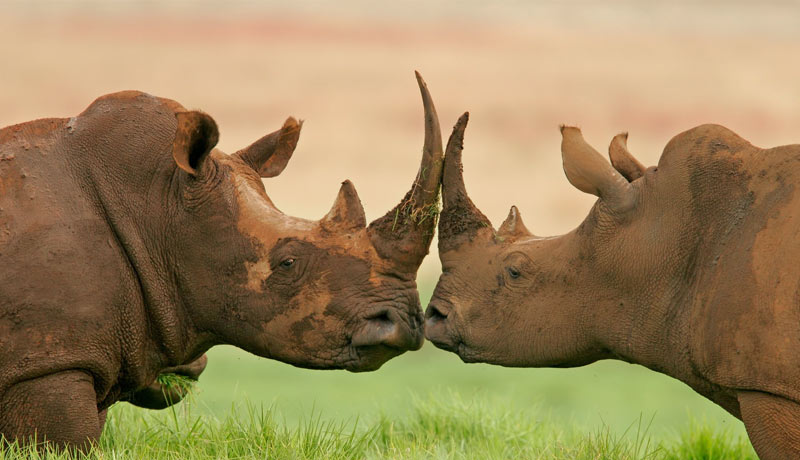
ThreatQuotient has invited the cybersecurity industry to celebrate World Rhino Day 2021. There are less than 3,000 rhinos left in the world, and the poaching issue is not abating. Since 2019, ThreatQuotient has been an official partner of Helping Rhinos, a nonprofit organisation committed on giving rhinos with a sustainable future, to assist raise awareness of rhino conservation efforts and funds for projects that will secure their preservation.
ThreatQuotient continues to help Helping Rhinos by funding Nocry, a member of the Black Mambas, South Africa’s first all-female anti-poaching force. In June 2021, the Black Mambas participated in the first-ever World Female Ranger Day, which celebrated the unique abilities that female rangers offer to conservation and the great progress they are achieving. These rangers are not only outstanding role models in the community, but they also safeguard animals on the front lines. ThreatQuotient’s support has helped cover the costs of vehicles, administrative, patrol, and equipment, as well as the new Black Mambas operations centre, which includes computers, radios, grid maps, and nature conversation book.

“Every year on World Rhino Day, I am proud that ThreatQuotient is part of something bigger than cybersecurity. Our love for the rhino species can be felt in every corner of ThreatQuotient, from our mascot and office space, to the rhino adoptions we have made on behalf of every region of the world where we have customers,” said John Czupak, CEO of ThreatQuotient.
He also said, “We recognize there are many causes that deserve worldwide attention. Today, we call on our industry peers to join us in raising awareness of rhino conservation. We tip our hat to Helping Rhinos for their tireless work, and I thank my team for building a culture at ThreatQuotient that actively looks for ways to make an impact on the world around us.”
Rhinos’ future on our planet is increasingly threatened by habitat loss. South Africa is home to 80% of Africa’s rhino population, and the region’s human population is expected to grow by 20 million by 2075, putting unprecedented strain on open spaces and the wildlife that depends on them for survival. ThreatQuotient also has four rhino adoptions – Mthetho, Makhosi, Mpilo, and Bhanoyi – that are growing and thriving at the Zululand Rhino Orphanage to help displaced rhinos.
Simon Jones, CEO of Helping Rhinos, added, “Helping Rhinos applauds the collaborative international efforts with the law enforcement agencies in South Africa, however, we still have a long road ahead to overcome the poaching crisis. In the first half of 2021, poaching was 50% higher than in the same period in 2020. With the support of dedicated organizations like ThreatQuotient, we can continue to find creative and innovative ways to protect the world’s rhino population. Helping Rhinos is grateful for their efforts, and look forward to welcoming other supporters into our community as a result.”
The Rhino Strongholds Protect project is the most recent initiative from Help Rhinos, and it aims to improve the efficiency and effectiveness of anti-poaching operations. Radio tracking collaring is a proven deterrent against poaching, and Helping Rhinos will be able to track rhinos across eight different reserves in the Eastern Cape of South Africa by placing 40 radio tracking collars on 40 rhinos. These collars will allow rangers to keep an eye on rhinos from afar, saving time and resources.
Consider attending the Global Gala for Rhinos on Oct. 23, 2021, to get involved and donate to Helping Rhinos’ goals. The gala, which will be a hybrid virtual event, will highlight efforts to build and strengthen Rhino Strongholds, which are critical for the long-term survival of both black and white rhino on Ol Pejeta Conservancy.